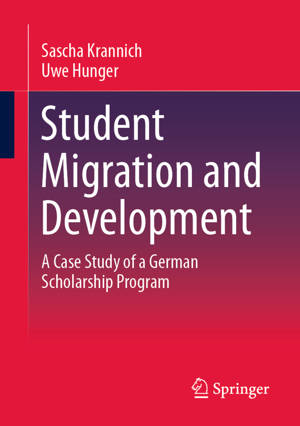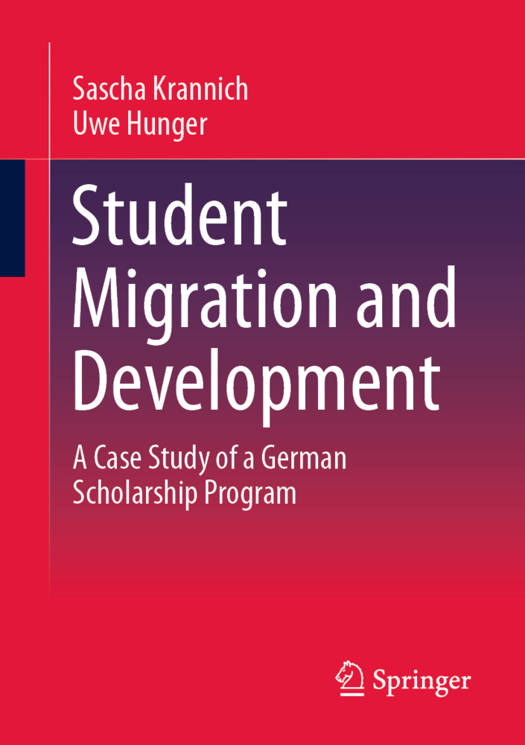
- Afhalen na 1 uur in een winkel met voorraad
- Gratis thuislevering in België vanaf € 30
- Ruim aanbod met 7 miljoen producten
- Afhalen na 1 uur in een winkel met voorraad
- Gratis thuislevering in België vanaf € 30
- Ruim aanbod met 7 miljoen producten
Zoeken
Student Migration and Development
A Case Study of a German Scholarship Program
Sascha Krannich, Uwe Hunger
Paperback | Engels
€ 84,45
+ 168 punten
Omschrijving
How do international students and alumni contribute to development in their countries of origin? Is the development effect greatest when students return to their countries of origin directly after completing their studies and become involved locally there, or can they also support the development of their country of origin if they remain abroad after their studies and contribute their knowledge and capital to the development process of their country of origin via transnational networks? Specifically, this question is examined in this open access publication using the example of the scholarship and alumni work of the Catholic Academic Alien Service (KAAD) in five countries of different developing regions: Georgia, Ghana, Indonesia, Colombia and Palestine.
Specificaties
Betrokkenen
- Auteur(s):
- Uitgeverij:
Inhoud
- Aantal bladzijden:
- 150
- Taal:
- Engels
Eigenschappen
- Productcode (EAN):
- 9783658431242
- Verschijningsdatum:
- 28/03/2024
- Uitvoering:
- Paperback
- Formaat:
- Trade paperback (VS)
- Afmetingen:
- 148 mm x 210 mm
- Gewicht:
- 208 g

Alleen bij Standaard Boekhandel
+ 168 punten op je klantenkaart van Standaard Boekhandel
Beoordelingen
We publiceren alleen reviews die voldoen aan de voorwaarden voor reviews. Bekijk onze voorwaarden voor reviews.











